The 2023 Nobel Prize in Chemistry was awarded to three scientists for their research on quantum dots, the smallest components of nanotechnology, used to transmit light from TVs and LEDs, illuminating cancerous tissue for surgeons.
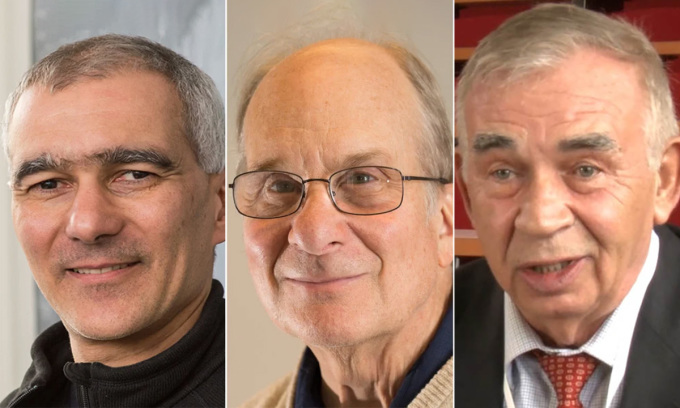
Three scientists Moungi G. Bawendi, Louis E. Brus and Alexei I. Ekimov received the 2023 Nobel Prize in Chemistry. Photo: CNN
At 4:45 p.m. on October 4 (Hanoi time), the Royal Swedish Academy of Sciences announced that three scientists, Moungi G. Bawendi, Louis E. Brus and Alexei I. Ekimov, are the winners of the 2023 Nobel Prize in Chemistry.
Moungi G. Bawendi (62 years old), born in France, is currently a professor at the Massachusetts Institute of Technology (MIT), USA. Louis E. Brus (80 years old), American, is currently a professor at Columbia University, USA. Alexei I. Ekimov (78 years old), born in the Soviet Union. He received his PhD from the Ioffe Institute of Physics and Technology, Russia, in 1974 and was a senior scientist at Nanocrystals Technology, USA.
Chemists know that the properties of an element are determined by the number of electrons it has. However, when matter shrinks to nanoscale dimensions, quantum phenomena arise that are governed by the size of the matter. The 2023 Nobel Laureates in Chemistry have successfully produced particles so small that their properties are determined by quantum phenomena. These particles, called quantum dots, are now of great importance in nanotechnology.
"Quantum dots have many interesting and unusual properties. The most important is that they have different colours depending on their size," said Johan Åqvist, chairman of the Nobel Assembly for Chemistry.
Physicists have long known that size-dependent quantum effects could theoretically arise in nanoparticles, but at the time it was virtually impossible to tune nanoscale dimensions. As a result, few believed that such knowledge could be applied in practice.
However, in the early 1980s, Alexei Ekimov successfully produced a size-dependent quantum effect in colored glass. The color came from copper chloride nanoparticles, and Ekimov demonstrated that particle size affected the color of the glass through a quantum effect.
A few years later, Louis Brus became the first scientist in the world to demonstrate size-dependent quantum effects in particles floating freely in a liquid.
In 1993, Moungi Bawendi revolutionized the chemical production of quantum dots, resulting in near-perfect particles. Such high quality is essential for the use of quantum dots in many applications.
Quantum dots now help light up computer screens and TVs based on QLED technology. They also add color to the light of some LEDs, and biochemists and doctors use them to map biological tissue.
Quantum dots therefore offer enormous benefits to humanity. Researchers believe that in the future, they could contribute to flexible electronics, tiny sensors, thinner solar cells, and encrypted quantum communications. Humans have only just begun to explore the potential of these tiny particles.
This year's Nobel laureate will receive a prize of 11 million Swedish krona ($986,000), an increase of one million Swedish krona from 2022.
The 2022 Nobel Prize in Chemistry was awarded to three scientists Carolyn R. Bertozzi (USA), Morten Meldal (Denmark) and K. Barry Sharpless (USA) for their research on the development of click chemistry and bioorthogonal chemistry, applications to explore cells and improve cancer treatment drugs.
The Nobel Prize is an international award established by the Nobel Foundation in Stockholm in 1901 based on the estate of Alfred Nobel, the Swedish inventor and businessman.
The prize is awarded annually to individuals and organizations with outstanding contributions in the fields of Medicine, Chemistry, Physics, Literature, and Peace. In 1968, the Swedish Central Bank established the Sveriges Riksbank Prize in Economic Sciences in Memory of Nobel, also known as the Nobel Prize in Economics.
Each award consists of a medal, a personal diploma and a cash prize. From 1901 to 2022, the prize has been awarded 615 times to 989 individuals and organizations around the world.
Thu Thao - An Khang (According to Nobel Prize )
Source link




![[Photo] Closing of the 11th Conference of the 13th Central Committee of the Communist Party of Vietnam](https://vstatic.vietnam.vn/vietnam/resource/IMAGE/2025/4/12/114b57fe6e9b4814a5ddfacf6dfe5b7f)

![[Photo] Overcoming all difficulties, speeding up construction progress of Hoa Binh Hydropower Plant Expansion Project](https://vstatic.vietnam.vn/vietnam/resource/IMAGE/2025/4/12/bff04b551e98484c84d74c8faa3526e0)

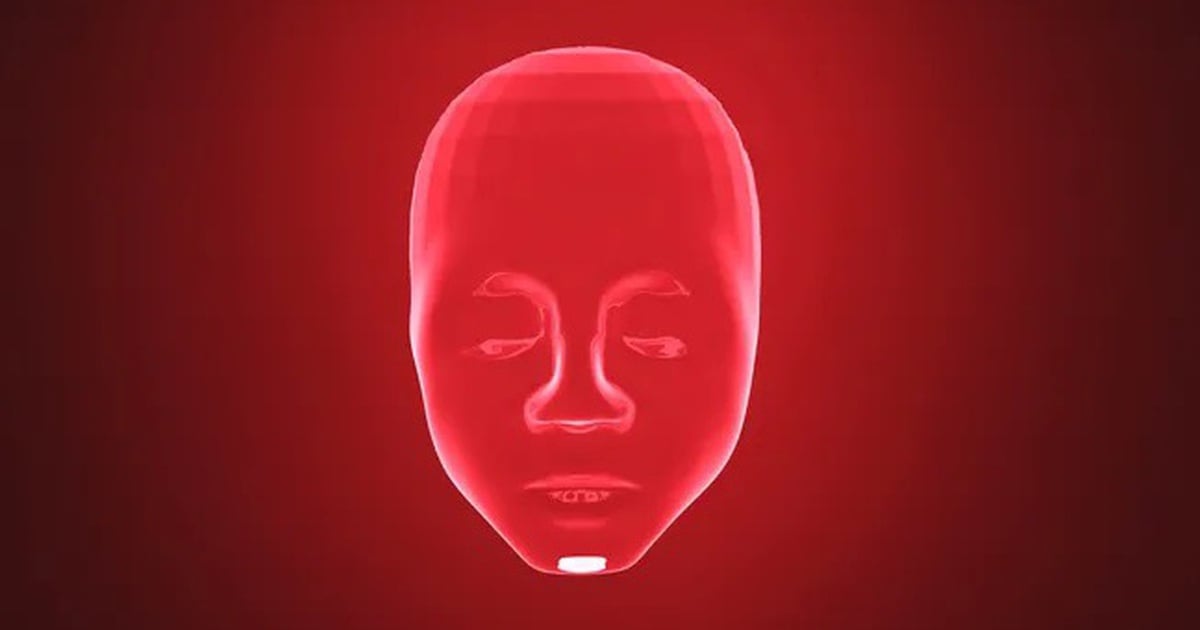




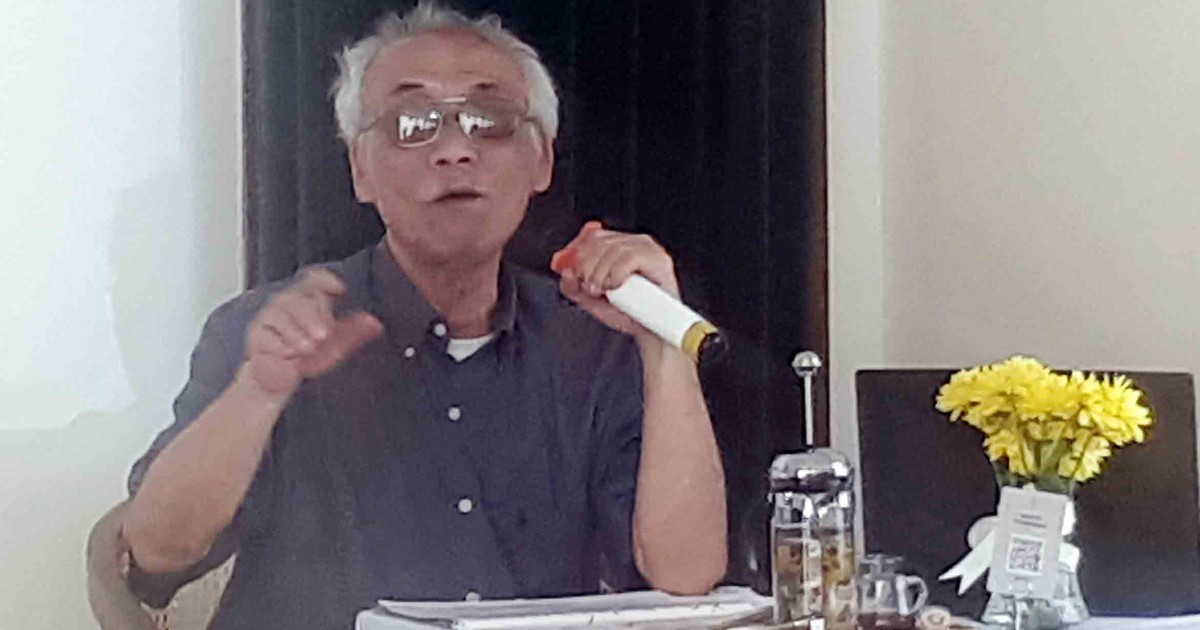
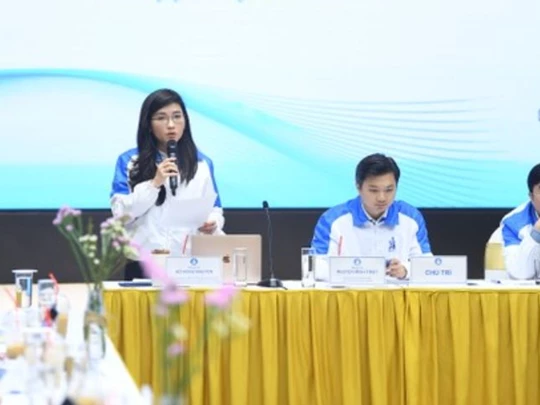


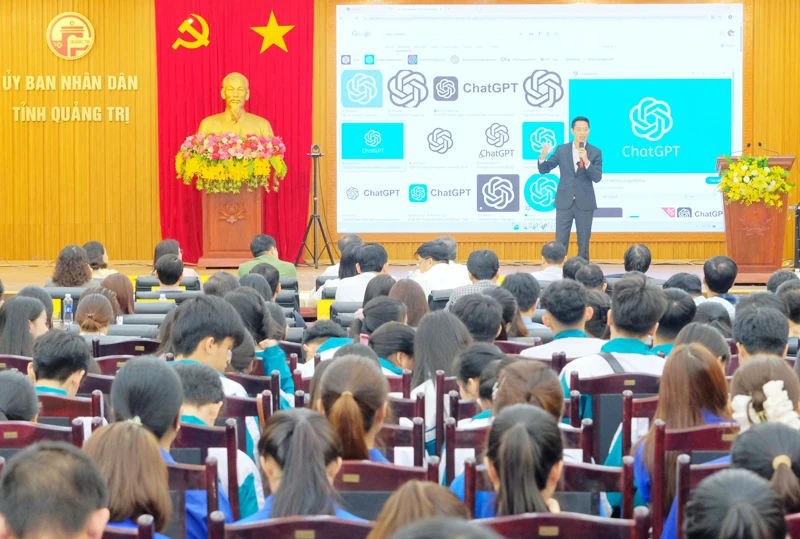

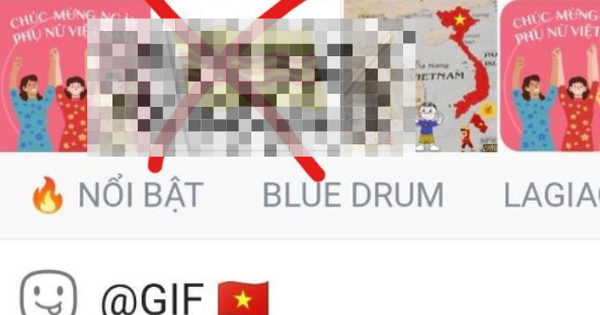














































































Comment (0)